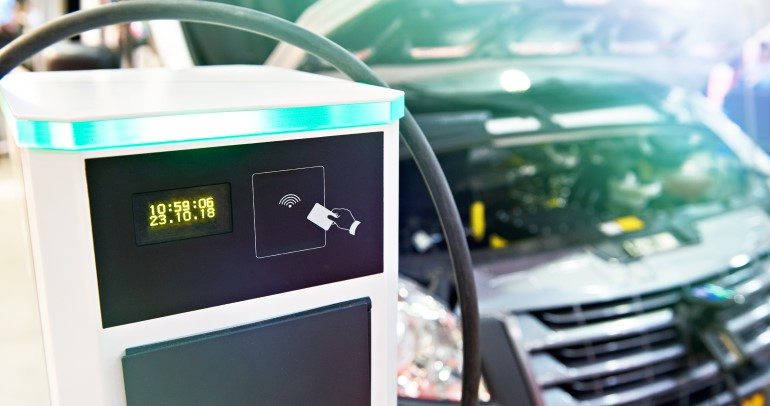
For more than two decades, the National Work Truck Show has been where commercial trucking business gets done. Invariably, deals made on the floor of this expo result in the placement of thousands of new big rigs on America’s roadways.
Tough. Dependable. Job done.
At this year’s show, however, I noticed a perceptible shift in the winds, heralding a greener future. Discussed for years, but considered the costly stuff of fancy imagination and drawing boards, EV trucking has made its grand entry into the trucking consciousness, and a new trio of current-time buzzwords were being uttered by attendees of this year’s show:
Autonomy. Connectivity. Electrification.
Indeed, the biggest headlines at the NTEA’s annual showcase weren’t about torque, hauling capacity, and power. In fact, the news that had everyone buzzing was the opinions of some experts that, by 2022, the cost of owning an EV truck, over its lifetime, will equal that of its gas or diesel-sipping counterparts.
Let that sink in for a moment. It cannot be understated that, in a room full of people who depend upon box trucks to tractor-trailers for their livelihoods, no less than some of the industry’s biggest advocates pronounced that their entire business model is about to be forever transformed.
“Electrification can be really beneficial for the work truck environment,” said Michael Berube, a U.S. Department of Energy executive and presenter at the show. “I know we’re in the early days, but the time is now for people to get in and start experimenting, because it’s going to be the wave of the future.”
Presenters like Berube aren’t just thinking about catching the latest wave in technology – they are also considering the positive environmental impact of the work truck industry shifting to EV powertrains as millions of hybrid and EV passenger cars emit infinitesimal amounts of carbons into our atmosphere. In fact, the National Energy Agency found that emissions for heavy-duty vehicles (HDV) have grown faster than any other transit mode – by a national average of 2.6 percent – since 2000.
What will it take for work trucks to dive into the EV pool?
Clearly, despite the headline-making benefits of EV, the market reality is thus: Few manufacturers are poised to deliver fleets of electrified rigs. It will take more than the Tesla Semi – a fully electrified tractor-trailer scheduled to hit highways in 2020 – to turn a whimper into a bang.
Fortunately, more traditional rivals have taken notice. Daimler, the world’s largest truck manufacturer, is already producing electric rigs under its various brands. Last June, they unveiled two electric Freightliner trucks – the eCascadia and medium-duty eM2 106 – which they confirm are poised for production in 2021. More recently, in late March of 2019, Tesla rival Nikola Motors announced it was building a manufacturing facility for its hydrogen-electric rig on 400 acres of land it purchased in Arizona. Finally, Ford signaled their EV intentions, announcing the evolution of their eTrucking plans at the Work Truck Show.
However, with these few exceptions, the work truck industry remains woefully unprepared for this phase shift. Most companies simply aren’t ready to take advantage of this change, or haven’t felt the pressure of increased demand from purchasers, to double-down on EV technology.
Why should the work truck industry embrace EV?
Clearly, if we analyze the cost-to-operate statements made at the Work Truck Show, we can extrapolate that in about a half-decade, EV trucks will be cheaper to operate over their lifetime than fueled rigs. Understanding and marketing these benefits will likely help to move the needle.
Government entities, eager to reduce emissions, will likely insist that fleets start to make the transformation over time – so the burden may shift to fleet managers, who will look to embrace EV additions to their fleets sooner, rather than later.
The European Union and Chinese truck makers are forging ahead into electrification, understanding its environmental and economic importance. So it will be imperative for American manufacturers to keep pace and push the EV needle to remain competitive.
The time is now to gain a greater understanding of the EV trucking business – definitely, clearly the risk for those who delay entry is great.
Want to gain a greater understanding of how electrification trends will impact your manufacturing operations? We at Escalent are happy to help you gather insights to help you better embrace an EV trucking future. Click below to send us a note to start the conversation now.








